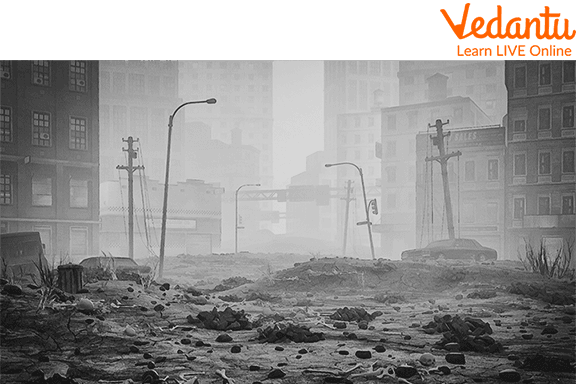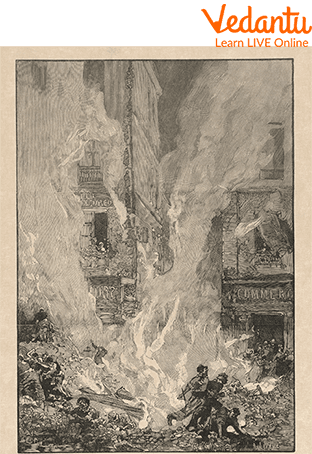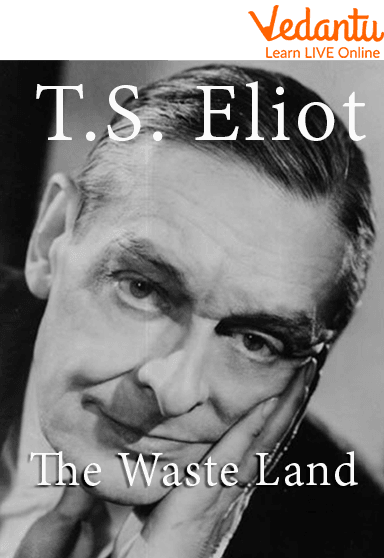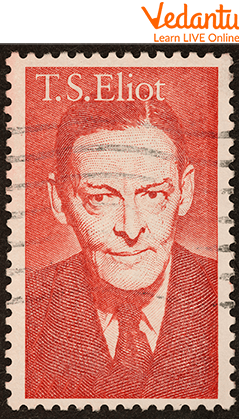An Overview of ‘The Wasteland’ Poem
T.S Eliot's poem 'The Wasteland' is a modern masterpiece of the 20th century, which was published in 1992. It is a five-section poem written on the disillusion and despair of the modern world. It is one of the most remarkable works of the author of ‘The Wasteland’.
It is a dramatic monologue that changes speakers, their location, and time frequently in the poem. It is also accompanied by literary, musical, historical, and cultural allusions. It was regarded as one of the most influential and innovative poems of the 20th century. In this article, The Wasteland poem is shared with its author and summary.
The Theme of the Poem 'The Wasteland’
The poem 'The Wasteland' was a topic of sensation in 1922. It is today’s one of the most widely translated and read poems of the 21st century. In this poem, the poet has described infertility and disturbance prevalent in modern society after the end of the first world war.

Depicting Wasteland
The Waste Land can be interpreted as a poem on brokenness and loss. It references the First World War and the conflict faced by people at that time.
Poem: The Wasteland
In The Burial of the Dead
April is the cruellest month, breeding
Lilacs out of the dead land, mixing
Memory and desire, stirring
Dull roots with spring rain.
Winter kept us warm, covering
Earth in forgetful snow, feeding
A little life with dried tubers.
Summer surprised us, coming over the Starnbergersee
With a shower of rain; we stopped in the colonnade,
And went on in sunlight, into the Hofgarten,
And drank coffee, and talked for an hour.
Bin gar keine Russin, stamm’ aus Litauen, echt deutsch.
And when we were children, staying at the arch-duke’s,
My cousin’s, he took me out on a sled,
And I was frightened. He said, Marie,
Marie, hold on tight. And down we went.
In the mountains, there you feel free.
I read, much of the night, and go south in the winter.
What are the roots that clutch, what branches grow
Out of this stony rubbish? Son of man,
You cannot say, or guess, for you know only
A heap of broken images, where the sun beats,
And the dead tree gives no shelter, the cricket no relief,
And the dry stone has no sound of water. Only
There is a shadow under this red rock,
(Come in under the shadow of this red rock),
And I will show you something different from either
Your shadow in the morning striding behind you
Or your shadow at evening rising to meet you;
I will show you fear in a handful of dust.
Frisch weht der Wind
Der Heimat zu
Mein Irisch Kind,
Wo weilest du?
“You gave me hyacinths first a year ago;
“They called me the hyacinth girl.”
—Yet when we came back, late, from the Hyacinth garden,
Your arms full, and your hair wet, I could not
Speak, and my eyes failed, I was neither
Living nor dead, and I knew nothing,
Looking into the heart of light, the silence.
Oed’ und leer das Meer.
Madame Sosostris famous clairvoyante,
Had a bad cold, nevertheless
Is known to be the wisest woman in Europe,
With a wicked pack of cards. Here, said she,
Is your card, the drowned Phoenician Sailor,
(Those are pearls that were his eyes. Look!)
Here is Belladonna, the Lady of the Rocks,
The lady of situations.
Here is the man with three staves, and here the Wheel,
And here is the one-eyed merchant, and this card,
Which is blank, is something he carries on his back,
Which I am forbidden to see. I do not find
The Hanged Man. Fear death by water.
I see crowds of people, walking round in a ring.
Thank you. If you see dear Mrs. Equitone,
Tell her I bring the horoscope myself:
One must be so careful these days.

Fire
Unreal City
Under the brown fog of a winter dawn,
A crowd flowed over London Bridge, so many,
I had not thought death had undone so many.
Sighs, short and infrequent, were exhaled,
And each man fixed his eyes before his feet.
Flowed up the hill and down King William Street,
To where Saint Mary Woolnoth kept the hours
With a dead sound on the final stroke of nine.
There I saw one I knew, and stopped him, crying: “Stetson!
“You who were with me in the ships at Mylae!
“That corpse you planted last year in your garden,
“Has it begun to sprout? Will it bloom this year?
“Or has the sudden frost disturbed its bed?
“Oh keep the Dog far hence, that’s friend to men,
“Or with his nails he’ll dig it up again!
“You! hypocrite lecteur

The Author of ‘The Wasteland’
About the Author of The Wasteland
T.S Eliot is the author of this poem. He is regarded as one of the most famous writers of modernist poetry of the 20th century. His poems are symbolised by their spiritual and emotional sterility to the modern world.

T.S Eliot, the author of Wasteland
The Wasteland Summary
The first part of the poem introduces feelings of dreadfulness and despair. The beginning of the poem is very intimidating. It begins with the famous phrase, "April is the cruellest month" in which he casts the season not as hopeful but as a reminder of death and mortality.
The second part 'Game of Chess' begins in a lavish room where a woman and man are engaged in a conversation, when she finds it hopeless she asks him to play a game of chess. The poem ends with the Sanskrit word ' Shantih' which means peace which is hard to answer whether the poet achieved in his life. We can conclude that the wasteland summary is all about the mental and emotional state of the people living in London after the first world war.


FAQs on T.S Eliot's ‘The Wasteland Poem’
1. Who is the speaker in the poem The Waste Land?
The speaker is Encolpius, the narrator of the 1st-century novel Satyricon by Gaius Petronius. Sibyls were ancient women in Greek mythology who could predict the future.
2. What is the message of the poem 'The Wasteland'?
The poem Wasteland depicts the lives of the people after the first world war where it shows their emotional state and feeling of discontent.
3. What kind of poetry is The Wasteland?
The Wasteland is an influential and experimental 435-line poem written by Thomas Stearns Eliot and first published in 1922. Structurally, it is a pastiche of various poetry forms, both traditional and contemporary.





